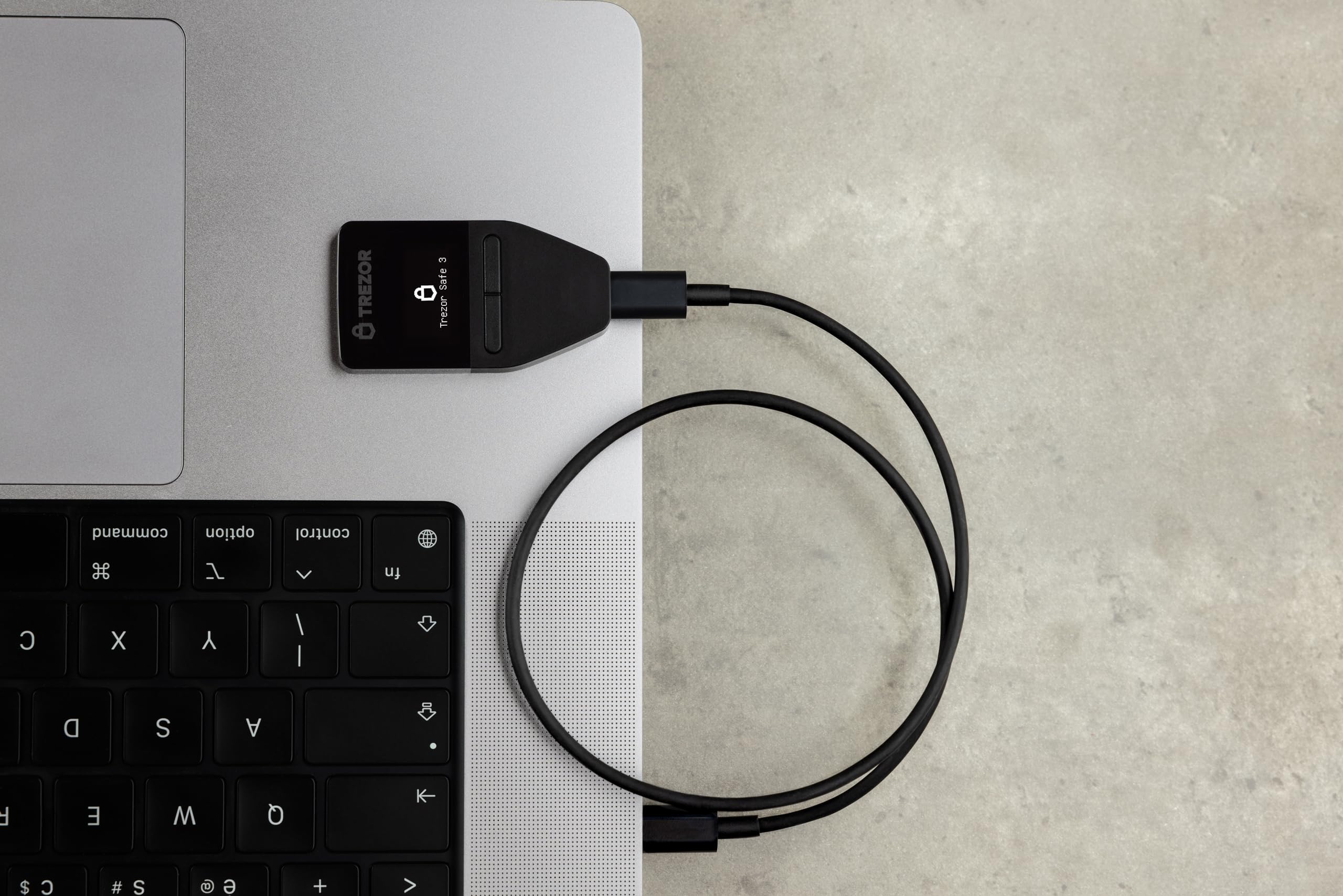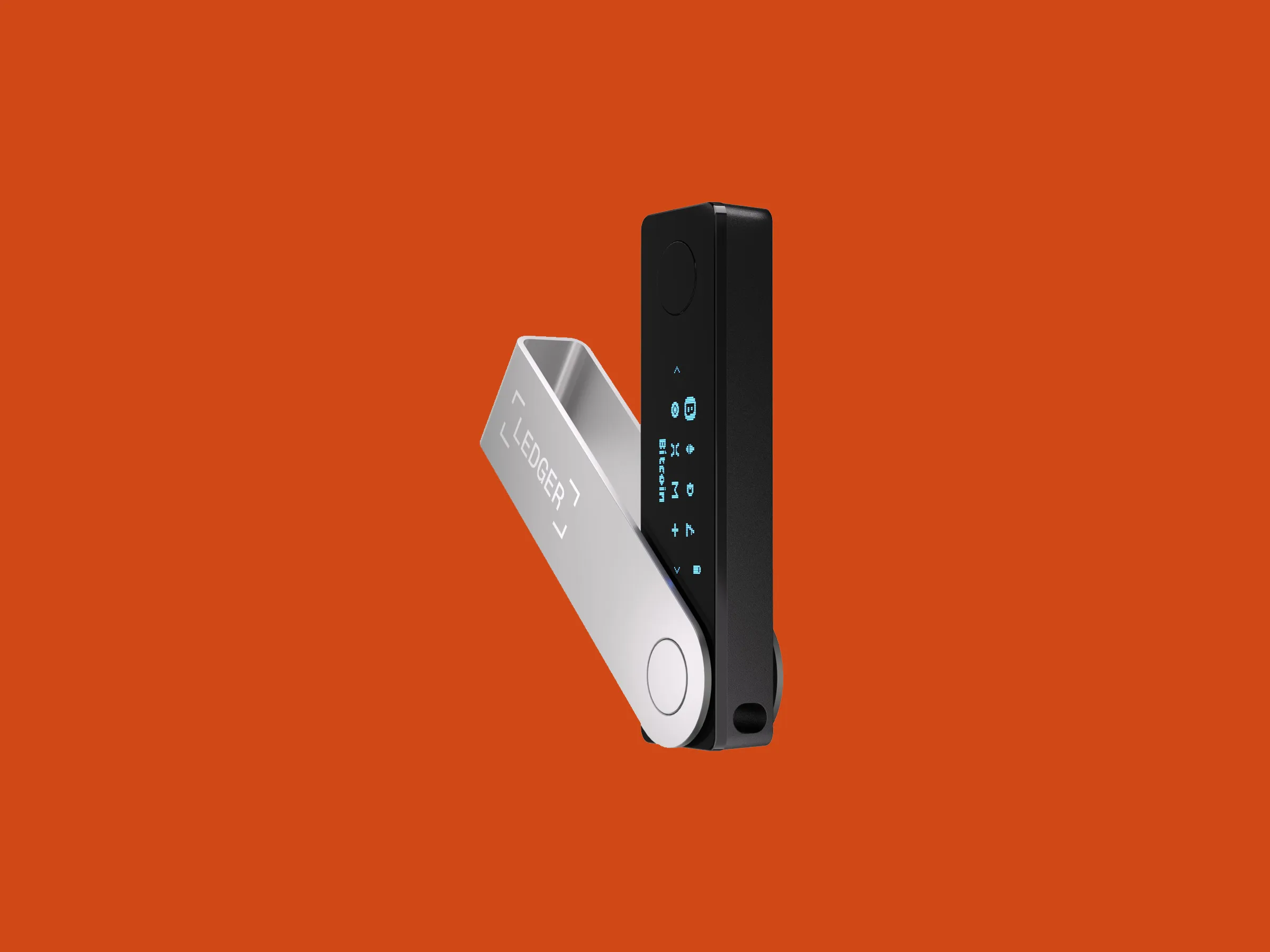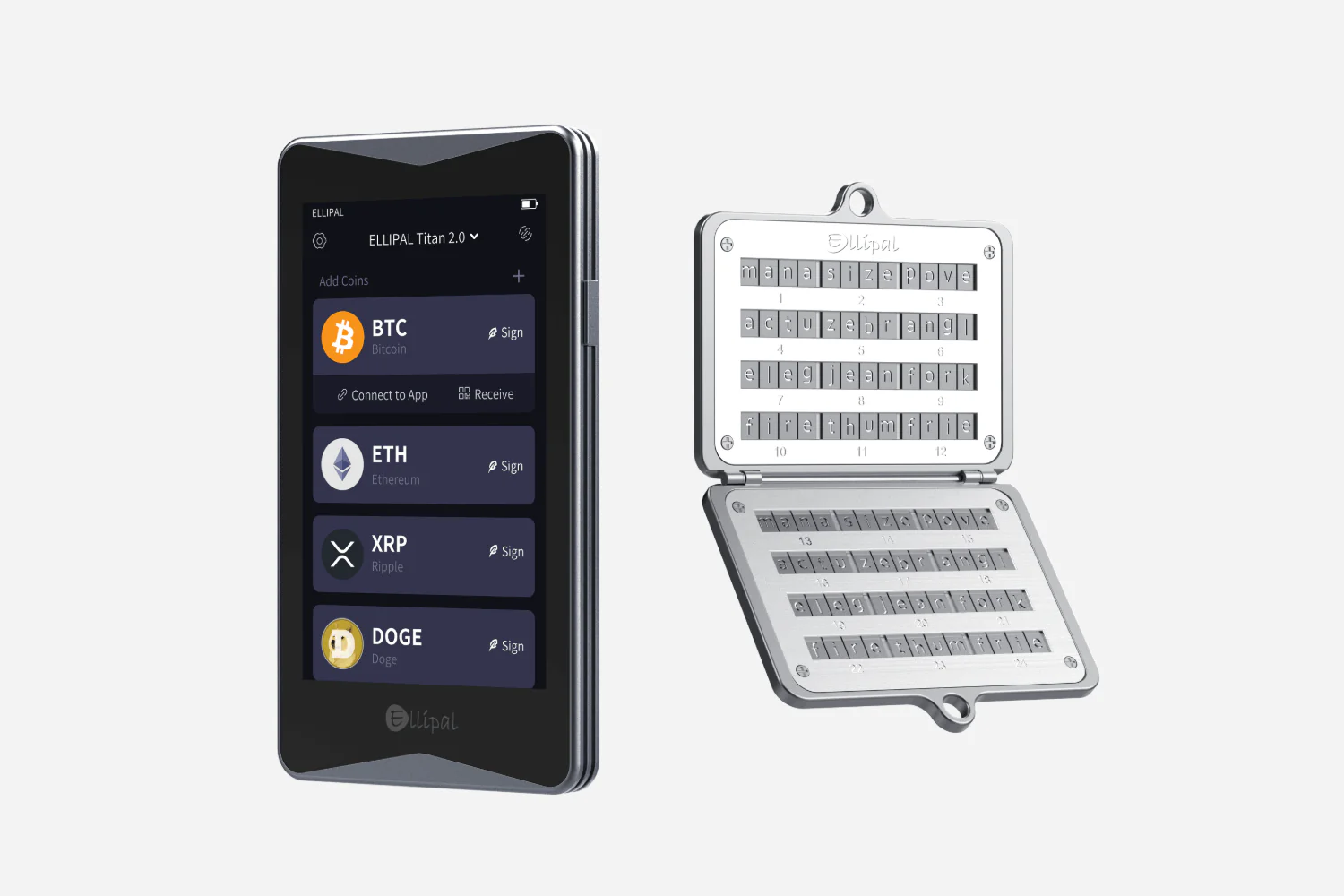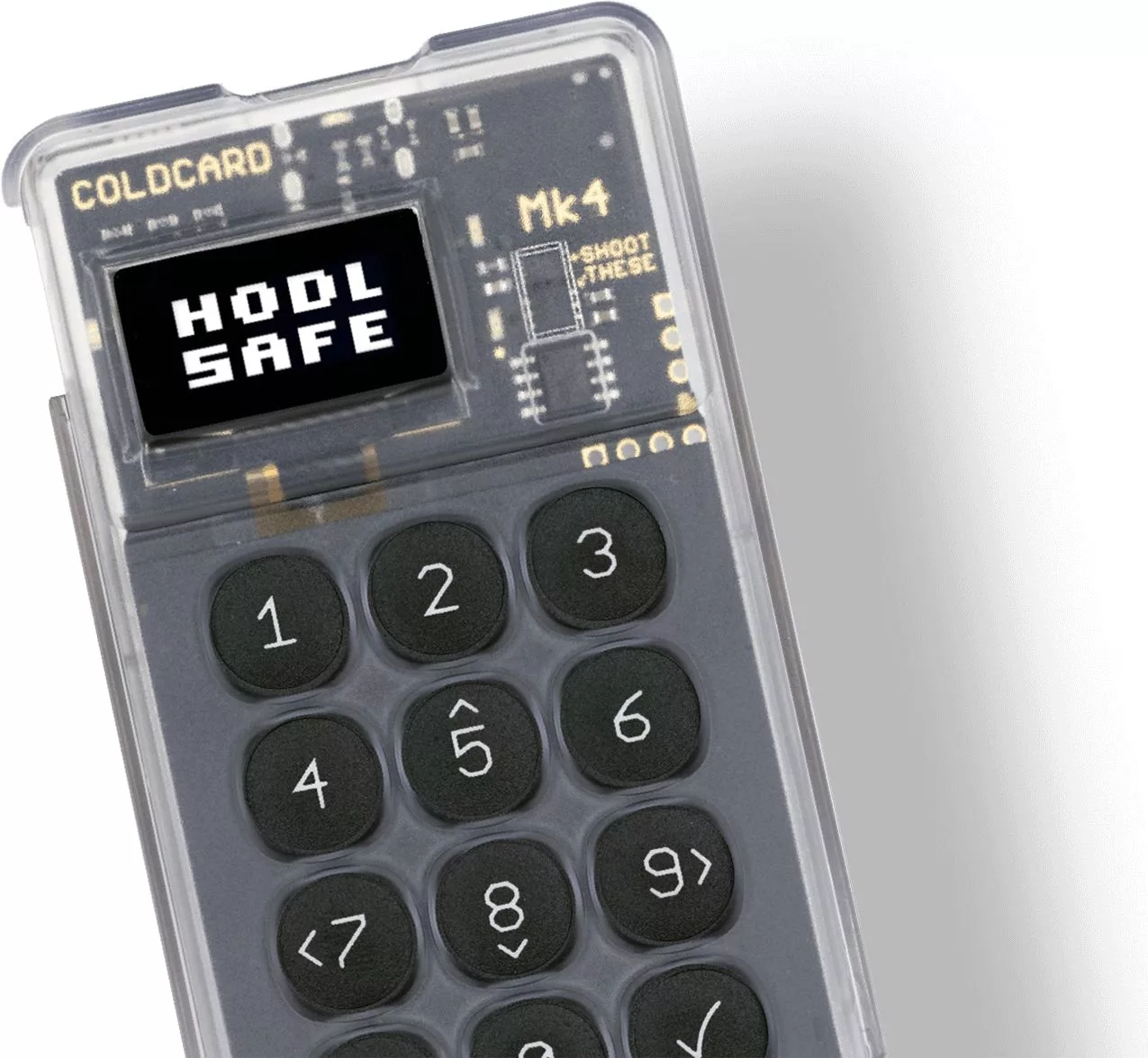When you’re dealing with cryptocurrency, security is everything. Keeping your digital assets safe from hackers and scams is a top priority, and that’s where hardware wallets come into play.
Why should I use a hardware wallet?
A hardware wallet keeps your private keys offline, significantly reducing the risk of hacking. It’s the most secure way to store your cryptocurrency, especially if you hold a substantial amount.
These devices store your private keys offline, making them the safest option for managing your crypto holdings. But with so many choices on the market, which one should you trust with your hard-earned assets? Let’s dive into the best crypto hardware wallets available in 2024.
Top Hardware Wallets
Choosing the right hardware wallet can feel overwhelming, especially with the myriad of options available today. However, some wallets stand out due to their unique features, user-friendliness, and security protocols. Here are the top contenders that you should consider.
| Feature | Trezor Safe 3 | Ledger Nano X | ELLIPAL Titan | Coldcard |
|---|---|---|---|---|
| Primary Use | General crypto storage | Versatile, multi-currency support | DeFi and DApps | Bitcoin storage |
| Supported Cryptocurrencies | 8,000+ | 5,500+ | 10,000+ | Bitcoin only |
| Security | Offline storage, open-source | Secure element (SE), Bluetooth | Air-gapped, tamper-proof design | PSBT protocol, Bitcoin-focused |
| Connectivity | USB only | Bluetooth, USB | QR code scanning, no USB/Bluetooth | USB only |
| User Interface | Physical buttons, no touchscreen | Physical buttons, small LCD screen | Large touchscreen, no physical buttons | Physical buttons, simple LCD screen |
| Recovery Options | 24-word recovery seed | 24-word recovery seed | 12-24 word mnemonic phrase | BIP39, BIP44, 24-word recovery seed |
| Price Range | $60 – $200 | ~$149 | ~$169 | ~$120 |
| Unique Feature | Best overall security | Bluetooth connectivity | Air-gapped for added security | Maximum Bitcoin security |
| Company Reputation | High, transparent and open-source | High, leading brand in the market | Trusted in the DeFi community | Strong reputation in Bitcoin community |
Trezor Safe 3: The Safest Option
If security is your utmost concern, Trezor Safe 3 is likely at the top of your list. Known as the safest crypto wallet on the market, it supports over 8,000 crypto assets, making it a versatile choice for investors. Trezor has a reputation for being transparent, with its open-source code allowing the community to verify its security protocols.
One of the key features of Trezor Safe 3 is its intuitive design. Despite being packed with advanced security features, it remains user-friendly, even for those who are new to hardware wallets. The device also comes with a robust recovery seed process, ensuring that you can regain access to your assets even if the wallet is lost or damaged.
Ledger Nano X: The Versatile Choice
For those who prioritize flexibility and connectivity, the Ledger Nano X is a fantastic option. This wallet is Bluetooth-enabled, which allows for wireless transactions, making it particularly convenient for users who prefer managing their assets on the go. Its open-source software is another significant advantage, providing transparency and ease of integration with various platforms.
Ledger Nano X supports over 5,500 cryptocurrencies, ensuring that you won’t outgrow it as your portfolio expands. The user experience is smooth, thanks to the Ledger Live companion app, which offers a comprehensive overview of your assets. Whether you’re storing Bitcoin, Ethereum, or lesser-known altcoins, Ledger Nano X has you covered.
ELLIPAL Titan: Best for DeFi and DApps
If you’re diving into the world of decentralized finance (DeFi) or frequently interact with decentralized applications (DApps), the ELLIPAL Titan is your best bet. Unlike other wallets, the ELLIPAL Titan is air-gapped, meaning it is completely isolated from any network. This feature drastically reduces the risk of hacking, as the device is never connected to the internet or any other network.
The ELLIPAL Titan also boasts a large touchscreen, making it easier to navigate through its features. This wallet is particularly well-suited for accessing DApps and managing assets on DeFi platforms, providing a seamless experience for users engaged in the decentralized web. Its robust build and tamper-proof design add an extra layer of security, ensuring your assets are safe.
Coldcard: The Bitcoin Maximalist’s Choice
For those who believe in Bitcoin above all else, the Coldcard wallet is a dedicated solution for securely storing your Bitcoin. Unlike other wallets that support multiple cryptocurrencies, Coldcard is designed specifically for Bitcoin, offering unmatched security features tailored for this use case.
One of the standout features of Coldcard is its integration with the PSBT (Partially Signed Bitcoin Transaction) protocol, which allows for signing transactions offline. This minimizes exposure to online threats, making it one of the most secure options for Bitcoin holders. Coldcard’s simple yet effective design is favored by those who prioritize security and privacy above all else.
Key Factors to Consider When Choosing a Hardware Wallet
Selecting the right hardware wallet isn’t just about picking the most popular or expensive option. Several key factors should guide your decision, depending on your needs and the specific use cases you have in mind.
Security Features
When it comes to hardware wallets, security is non-negotiable. The primary reason for using a hardware wallet is to keep your private keys offline, away from potential online threats. Key security features to look out for include offline storage, secure element (SE) chips, PIN and passphrase protection, and a robust recovery process.
Offline storage is the backbone of any hardware wallet’s security, ensuring that your private keys are never exposed to the internet. Wallets with secure element chips, like those found in Ledger devices, offer an additional layer of protection by safeguarding sensitive information. It’s also crucial to choose a wallet with a strong PIN and passphrase system to prevent unauthorized access.
Another important aspect is the recovery seed process, which allows you to restore your wallet if it’s lost or damaged. Make sure you store your recovery seed in a safe place, as it’s the only way to regain access to your assets.
Supported Cryptocurrencies
Your choice of hardware wallet should align with the cryptocurrencies you plan to store. While some wallets like Ledger Nano X support a wide range of cryptocurrencies, others like Coldcard are specialized for a single asset, such as Bitcoin.
If you hold a diverse portfolio, it’s essential to choose a wallet that supports multiple cryptocurrencies and tokens. Additionally, consider future-proofing your investment by selecting a wallet that regularly updates its supported assets to keep up with the evolving crypto landscape.
User Experience and Interface
User experience plays a significant role in how effectively you can manage your digital assets. Wallets with intuitive interfaces, such as those with touchscreens, are generally easier to navigate, especially for beginners. The companion software that comes with the wallet also matters—a well-designed app like Ledger Live can make all the difference in how you interact with your assets.
Consider whether you prefer physical buttons or a touchscreen, and look for wallets that match your comfort level. An easy-to-use wallet reduces the chances of user error, which is particularly important when dealing with large sums of cryptocurrency.
Reputation and Transparency
When it comes to storing your assets, trust is paramount. Opt for wallets from companies with a solid reputation and a track record of delivering secure products. Transparency is another crucial factor—wallets with open-source software allow the community to audit and verify their security measures.
Trezor, for instance, is well-known for its commitment to transparency and open-source hardware, which reassures users that there are no hidden vulnerabilities. Before making a decision, research the company behind the wallet, read user reviews, and consider the community’s trust in the product.
Conclusion
In the world of cryptocurrency, your security is only as strong as the tools you use to protect it. Hardware wallets offer the best protection by keeping your private keys offline and out of reach from potential hackers. Whether you’re looking for the ultimate security with Trezor Safe 3, the versatility of Ledger Nano X, the DeFi-friendly ELLIPAL Titan, or the Bitcoin-focused Coldcard, there’s a wallet to suit your needs.
Choosing the right hardware wallet depends on your specific requirements, including the types of cryptocurrencies you hold, the level of security you need, and your personal preferences in terms of user interface and connectivity. With the right hardware wallet, you can rest assured that your digital assets are safe, secure, and under your full control.











